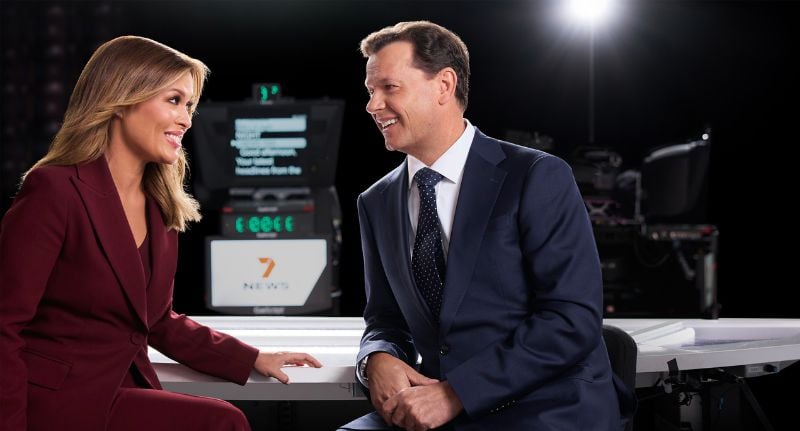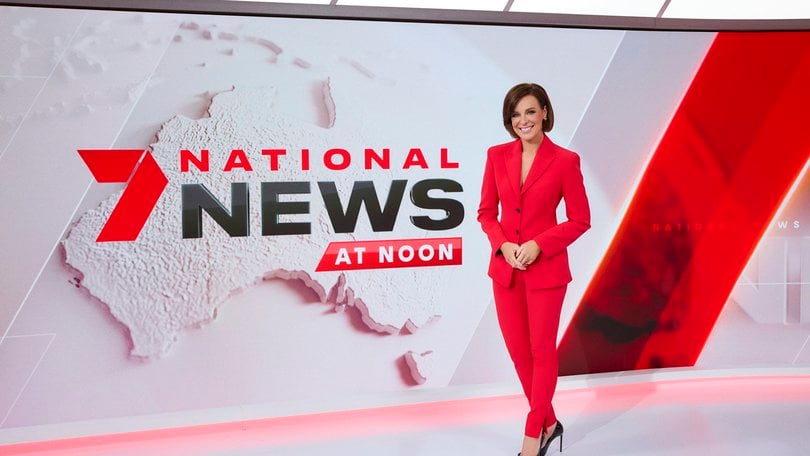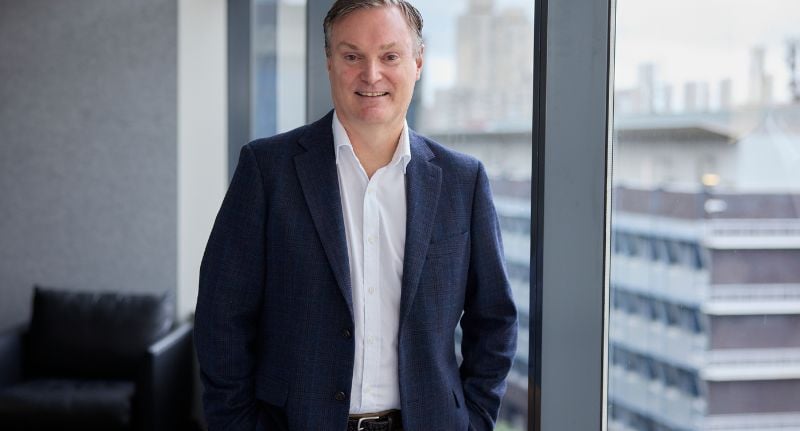Generally, before interviewing someone for a profile piece, journalists will do a vibe check.
I’m not talking about general research, I’m talking about anecdotes.
Usually, when canvassing, there will always be one or two negative comments. Not so much to add value, really, but just to even things out a little bit.
Usually, that is.
Not so for 7NEWS Sydney boss Geoff Dunn.
When asked by Mediaweek how he feels wearing the moniker of the ‘nicest guy in television news’, Dunn lived up to his reputation.
“That’s so kind,” he replied, genuinely a little overwhelmed by the news, before adding: “Thank you for mentioning that. I do try to treat people with respect”.
The values-first leader
When Seven’s Sydney newsroom found itself navigating uncertainty following the departure of Anthony De Ceglie, Dunn didn’t come in to reinvent or overhaul. He steadied the ship.
Dunn, who has spent nearly 30 years with Seven in senior producing and leadership roles, is widely regarded as a calm, respectful, and people-first newsroom leader, a trait that’s often remarked upon precisely because it’s not always the norm in broadcast news.
“I think integrity is really important, and that shows in our values. Values matter so much in our business. If you treat your staff well, I think you get better out of them,” Dunn said.
“I’m not going to say much about the past,” he added carefully, “but I have worked in a newsroom culture that was run by fear. Some people think that gets good performance out of others, but I don’t agree with that. I never liked going to work, fearing I was going to get a blast.”

The 7NEWS Sydney team
Not rebuilding, but building on strength
While some might have labelled his recent tenure a “rebuild,” Dunn is quick to challenge that narrative. To him, it’s not about fixing something broken, it’s about building on what already works.
“I don’t see it as rebuilding,” he said. “We already have such a strong team, we’re building on our strengths and looking to the future.
“We’ve got an amazing team in Sydney, with really experienced on-air journalists and presenters, former bureau reporters and correspondents. Our reporting team is just as strong, with some people having decades in the industry.
“They take real care with everything we do, and I respect them deeply for that. I feel honoured to be leading them.”
Trust and consistency at 6pm
Much of Dunn’s newsroom philosophy centres on reliability, not just internally, but for the audience.
“As for changes to the 6 o’clock news, I’ve always thought the last thing people want at that time is change. What they want is consistency. They want to know they can tune in every night and trust the people talking to them,” he said.
“That trust is more important than ever now, with so much disinformation on social media. In fact, we’ve seen more people turning to the 6 o’clock news, our figures in Sydney are up 4% year-on-year, because they know it’s a trusted source”.
A ritual and a responsibility
Dunn doesn’t view the evening bulletin as just another program slot, he sees it as a daily ritual that connects people to their communities and each other.
“For us, it’s a real responsibility. We try to connect with our viewers, to understand their needs and help them understand what’s going on in the world.
“We want to help them feel like they’re not alone. A lot of people are alone, but they can tune in at 6 o’clock and know they’ve got people they trust, who are there to help them.”
That ritual is personal, too. “The 6 o’clock news really is appointment viewing. For a lot of people, like my mum and dad, they never miss it. And I never do either.
“People might catch snippets of information during the day or scroll past something on social media, but when they sit down for the 6 o’clock news, they know they’re going to get a summary of the day and hear the important stuff. It’s a stable part of their day. A moment of clarity.”

7NEWS ‘News at Noon’ host Natarsha Belling
Why local news matters
Despite his national scope, Dunn is a vocal advocate for the significance of local reporting.
“Local news is incredibly important to us, it’s our bread and butter. It’s what’s happening to all of us,” he said.
“It’s just human nature to want to know what’s going on in your own environment. Things like health services, the hospital, transport, what the local council’s charging, or if you’re getting another bin.
“Of course we still cover national and world news, and we’ll lead with it when it matters, but more often than not, it’s the local news that people care about most.”
‘Betty in Blacktown’
Dunn’s team has a shorthand for staying focused on what the audience actually cares about: Betty in Blacktown.
“We famously talk about ‘Betty in Blacktown’ – and what she’s thinking, what she wants to know about.
“Even though she’s a made-up figure, she really is front and centre in our thinking. We ask: what would Betty care about?
“Would she be interested in a cold case killer? Maybe, because she might have heard of the person. So an update about that could be important. If the emergency department at her local hospital is full and people are lying on the floor, well, of course she’ll care about that.
“So, we always try to put the viewers at the forefront of everything we do.”
When stories deserve more time
Asked about the place of feature stories in the nightly bulletin, Dunn is pragmatic, it’s not about format, it’s about weight.
“When people say ‘feature stories’, they usually mean longform.
“For us, we like to devote more time to the biggest stories of the day, and those will run longer than average. But a three-minute feature on a light topic? That’s probably not going to make it into the 6 o’clock news.
“That said, the big stories, like the mushroom killer story, they’’l run really long. That one was at least eight minutes, plus live crosses.
“But light, longform features? That’s not really the 6 o’clock space. Sunrise can give it more time. So can the morning show, the afternoon news, and the news at noon. At 6 o’clock, people need a summary, what’s going on in the world, in their world, and what actually matters,” he said.

Leadership in real time
In the end, Dunn’s view of leadership isn’t built on hierarchy or status, it’s built on presence.
“I think it’s about being a people person. Understanding what the viewers want, and responding to that. Understanding what the people who work with you need, and maintaining strong values,” he said.
“Being a leader means leading by example, being ready to help when chaos hits the newsroom.
“Hopefully you can earn and keep people’s respect by treating them well. I think that’s the most important thing.”
